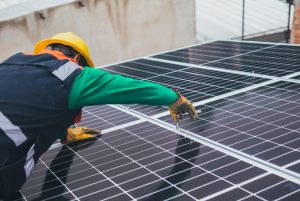
Harare — Africa will be $2.5 trillion short of the finance it needs to cope with climate change by 2030, a U.N. official said on Monday, adding that the continent has contributed the least to greenhouse gas emissions while seeing some of the worst impacts.
Africa attracts only 2% of global investments in clean energy but needs $2.8 trillion of investment in the sector by 2030, United Nations Economic Commission for Africa chief economist Hanan Morsy told a conference in Victoria Falls, Zimbabwe, warning against the consequences of under-funding.
“We end up in a vicious circle with investment shortfalls increasing exposure risk and worsening impact, further eroding fiscal space and raising finance costs,” she said.
Despite producing low emissions compared to other continents, climate change is costing African countries 5% of gross domestic product (GDP) annually, Morsy said.
On average, each African produced 1.04 tonnes of carbon dioxide emissions in 2021, less than a quarter of the global average, a joint U.N.-African Union report found last year.
The report said the average rate of warming in Africa was 0.3 degrees Celsius per decade in the 1991-2022 period, compared with 0.2 degrees in the world as a whole.
“The situation is further compounded by heavy public debt,” Morsy said, adding that African countries pay 1.7 percentage points higher interest on debt than other countries.
“Countries are spending more servicing their debt than on climate action.”
Many speakers at the UNECA conference called for global financial architecture reform.
“We must address the issue of unfair risk perceptions and credit ratings that offer Africa limited borrowing options,” UNECA Executive Secretary Claver Gatete said.
He cited data from the UN Development Program that estimated that the subjectivity of credit ratings was costing Africa up to $74.5 billion.
*Nyasha Chingono, editing: Rachel Savage & Sharon Singleton – Reuters



